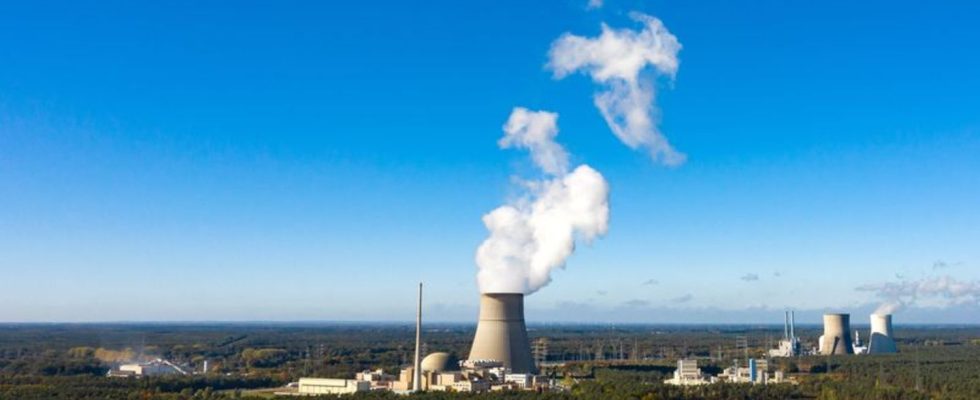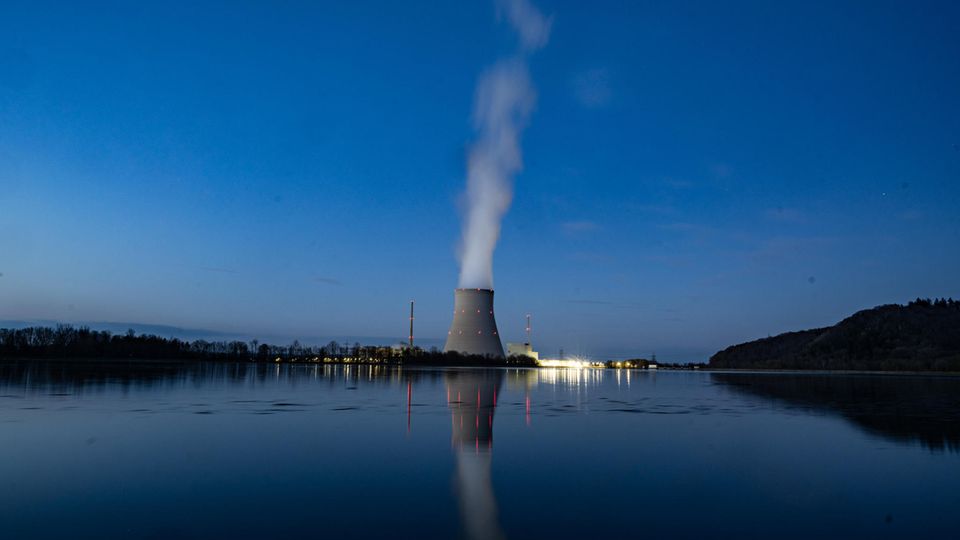While there are no longer any reactors on the grid in Germany, the nuclear power renaissance is being worked on in Brussels. Now around 30 heads of state and government want to discuss this – and climate protection.
There is a rift running through Europe over the question of the future of nuclear energy. While the nuclear phase-out, once (co-)decided by the CDU and CSU, was implemented with a slight delay in Germany in April 2023, other member states of the European Union (EU) are taking a different path.
Today in Brussels, various heads of state and government want to talk about what they see as the relevance of nuclear power – also for the fight against climate change. Important questions and answers about the first international nuclear energy summit.
Why is this summit taking place?
The International Atomic Energy Agency (IAEA) and the current EU Council Presidency Belgium invite you to the meeting. “It’s not about simply celebrating nuclear energy,” said IAEA chief Rafael Grossi on Wednesday.
It’s about discussing topics in the context of maintaining or expanding nuclear power – such as the question of how nuclear power plants could be financed more easily, explained Grossi. Belgium’s Prime Minister Alexander De Croo recently said it was an event that expressed that nuclear energy is “part of the puzzle” in the face of increasing energy needs.
Who is attending the meeting?
Germany is not at the table. In addition to De Croo, more than 30 other heads of state and government are expected who want to stick to nuclear power. Among others, French President Emmanuel Macron, his Finnish colleague Petteri Orpo, Petr Fiala from the Czech Republic and Viktor Orban from Hungary. Also expected are EU Commission President Ursula von der Leyen and EU Council President Charles Michel.
How is the summit meeting in Germany assessed?
The Federal Environment Ministry is emphatically calm: “The fact that there are different views among the EU member states regarding the use of nuclear power is known and is mutually respected,” said a spokesman. With its exit, Germany has strengthened the group of EU member states that are critical of nuclear power.
How is nuclear power used in Europe?
Nuclear reactors are currently in operation in 12 of the 27 member states, and two new nuclear power plants are under construction in Slovakia and France. In response to the changed framework conditions as a result of the war in Ukraine, Belgium has postponed the exit until 2035, while Spain is sticking to the exit. By far the most kilns are in France. Poland also intends to restart a nuclear energy program, the Czech Republic is also planning to build new reactors, how many are still unclear.
Why does France have a special role in Europe?
56 of the 100 nuclear power plants in Europe are in France. In principle, the construction of 14 or possibly more new plants is being considered. In addition, the service life of existing power plants should be extended if safety permits. However, this also shows how difficult new construction is: a new reactor is scheduled to go online in Flamanville in Normandy in mid-2024 – more than 16 years after construction began and with an estimated cost of 13.2 billion euros, four times as expensive as planned .
As a nuclear power, France does not only rely on nuclear power for reasons of energy supply: France’s Ministry of Defense recently announced that it wanted to enrich material containing lithium in two reactors at the Civaux nuclear power plant in central France. The rare gas tritium, which is needed for deterrent weapons, will then be extracted from it.
What is the situation in the USA and worldwide?
According to the IAEA, there are currently 415 nuclear reactors in operation worldwide. According to the lobbying organization WNA, the USA is the world’s largest producer of nuclear energy, followed by China and France. Support for nuclear power has grown among the American population, probably also because of rising oil and gas prices.
According to surveys, a majority is in favor of using nuclear energy. According to the US Energy Information Administration (EIA), 94 reactors were in use across the country (August 2023). China and India are currently the most actively pushing forward the expansion of nuclear power plants.
What is the situation in Germany?
Despite the nuclear phase-out, there are calls for a return. The CDU and CSU are just as committed to this as the FDP and AfD. In contrast, the SPD and the Greens emphasize that nuclear power has no future and that the expansion of renewable energies must be promoted for cost reasons. Chancellor Olaf Scholz (SPD) explained last year that anyone who calls for new nuclear power plants ignores the long construction times, the high costs and a completion “somewhere in the late 1930s with electricity prices that are twice or three times what we have to pay “renewable energies, which we have long since expanded across the board.”
The Ministry of Economics also said that the nuclear phase-out had no negative impact on security of supply in Germany. The Environment Ministry emphasized: “The nuclear phase-out makes our country safer; the risks of nuclear power are ultimately uncontrollable.”
What expectations do supporters associate with nuclear power?
The International Energy Agency (IEA) assigns nuclear power a key role in climate protection. At the World Climate Conference at the end of last year, around 20 countries announced that they wanted to increase energy production from nuclear power for the benefit of the climate. Capacity should be tripled by 2050, according to a statement signed by France and the USA, among others.
Canada, Japan, Great Britain and other European countries also joined the pact. To do this, the current capacity of a good 370 gigawatts would have to be expanded by around 740 GW. However, the IEA has pointed out that the total output of all reactors under construction and planned is far from sufficient for this.
Why is nuclear power controversial?
Above all because of the high risks, as shown by the reactor disasters in Chernobyl in Russia and Fukushima in Japan. Experts also say that without government subsidies the costs will never be economical. Since uranium reserves are also finite, experts expect prices to rise sharply and because of the long construction times for the reactors, the technology is not suitable for making a difference in the fight against the climate crisis. In addition, there is the unresolved issue of the final disposal of radioactive waste.


